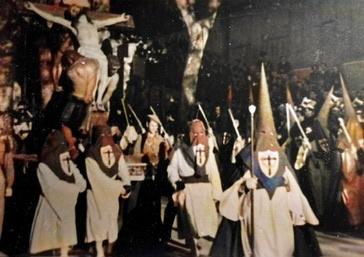How did the Christian Reconquista affect the naming conventions and cultural identity of Mallorca?
Similar Topics
christian reconquista mallorca
naming conventions mallorca
cultural identity mallorca
muslim rule mallorca
arabic toponyms mallorca
king james i
christian settlers mallorca
mallorcan cultural synthesis
The Christian Reconquista had a profound impact on the naming conventions and cultural identity of Mallorca. Prior to the reconquest in 1229, the island was under Muslim rule for over three centuries, which left a significant imprint on its toponyms and cultural landscape. Many place names were derived from Arabic, reflecting the period’s Islamic influence, with names still echoing the linguistic heritage of that era. However, following King James I of Aragon’s conquest, there was a deliberate effort to Christianize the island’s identity, which included altering place names to reflect the newfound Christian dominance. This shift was part of a broader process to integrate Mallorca into the Crown of Aragon and impose a distinct Christian European cultural framework.
The transformation in naming conventions was accompanied by demographic and social changes that shaped Mallorca’s cultural identity. The arrival of Christian settlers from Catalonia and beyond introduced new languages, customs, and governance systems, further diminishing the Islamic heritage that had characterized the island for centuries. Churches and monasteries were established, and many of the island’s landmarks were rededicated to Christian saints, symbolically reinforcing the new religious and cultural order. Over time, a distinct Mallorcan identity emerged, blending the island’s Muslim past with the prevailing Christian traditions, which is still reflected today in its architecture, festivals, and even in the Catalan dialect spoken locally.
This evolution was not only a matter of external imposition but also a dynamic process in which Mallorcans adapted to the changing political and religious landscape. While the Christian Reconquista sought to redefine the island’s identity, the vestiges of its Moorish past continued to influence Mallorca’s culture subtly. The coexistence of Christian and Islamic heritage can be seen in the enduring presence of certain place names and cultural elements that survived despite official changes. In essence, the reconquest marked a turning point that undeniably reshaped Mallorca’s identity, blending conquest, colonization, and cultural synthesis into a unique historical legacy that travelers can witness today.
The transformation in naming conventions was accompanied by demographic and social changes that shaped Mallorca’s cultural identity. The arrival of Christian settlers from Catalonia and beyond introduced new languages, customs, and governance systems, further diminishing the Islamic heritage that had characterized the island for centuries. Churches and monasteries were established, and many of the island’s landmarks were rededicated to Christian saints, symbolically reinforcing the new religious and cultural order. Over time, a distinct Mallorcan identity emerged, blending the island’s Muslim past with the prevailing Christian traditions, which is still reflected today in its architecture, festivals, and even in the Catalan dialect spoken locally.
This evolution was not only a matter of external imposition but also a dynamic process in which Mallorcans adapted to the changing political and religious landscape. While the Christian Reconquista sought to redefine the island’s identity, the vestiges of its Moorish past continued to influence Mallorca’s culture subtly. The coexistence of Christian and Islamic heritage can be seen in the enduring presence of certain place names and cultural elements that survived despite official changes. In essence, the reconquest marked a turning point that undeniably reshaped Mallorca’s identity, blending conquest, colonization, and cultural synthesis into a unique historical legacy that travelers can witness today.
🧩 Related Questions
Related Question
What geological features in Mallorca highlight the island's volcanic and tectonic past for visitors?
Related Question
In what ways does the Serra de Tramuntana mountain range contribute to Mallorca’s appeal for hikers?
Related Question
What dietary advantages does carob offer compared to other sweet snacks available in Mallorca?
